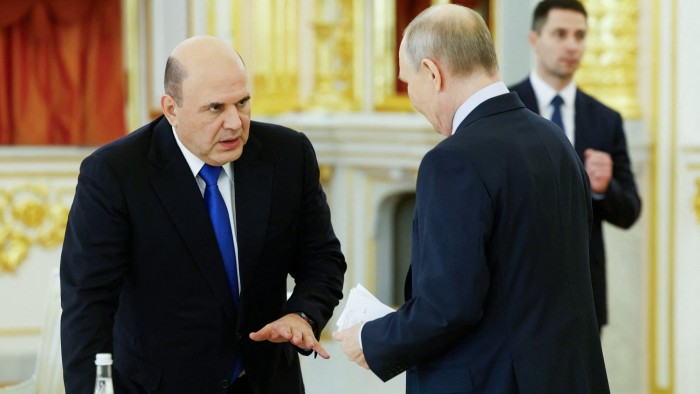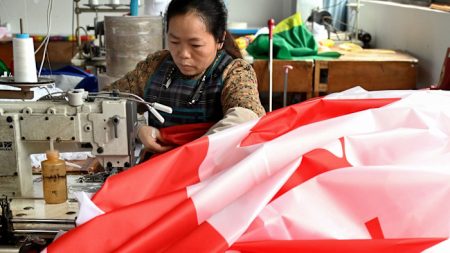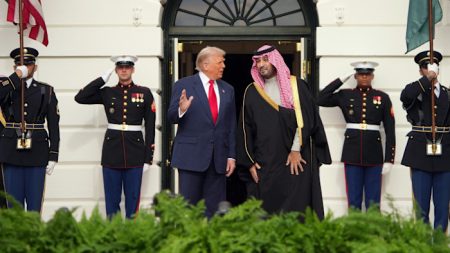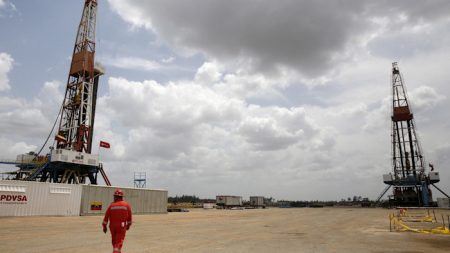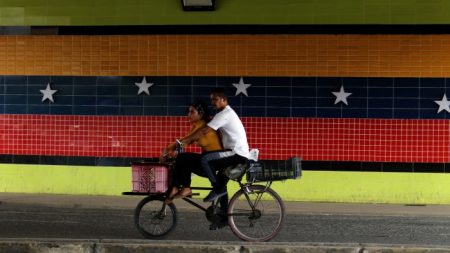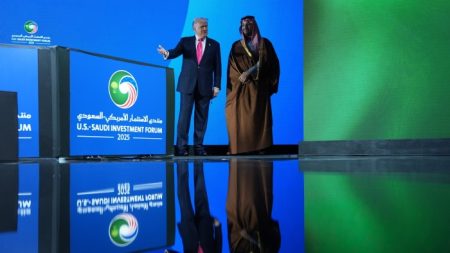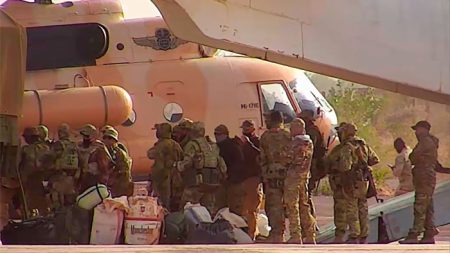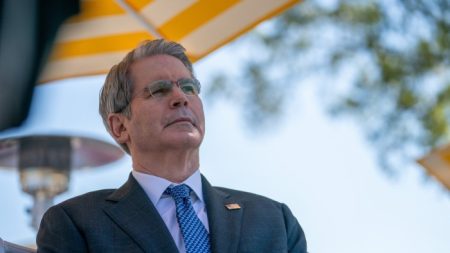Unlock the Editor’s Digest for free
Roula Khalaf, Editor of the FT, selects her favourite stories in this weekly newsletter.
Russian officials believe western pressure is hampering Moscow’s efforts to draw former Soviet nations closer into its orbit and build economic ties with the global south, according to a leaked government report.
The internal presentation, shown at a strategy session led by Prime Minister Mikhail Mishustin last April, offers a rare insight into how Russia’s war in Ukraine has harmed ties with some of its closest allies.
The analysis notably concedes that western sanctions pressure, as well as economic overtures, had succeeded in driving a wedge between Moscow and some of its nearest trade partners.
Russia’s cabinet presented the report to several dozen senior government officials and top executives at some of Russia’s largest state companies, according to its website. Hardline experts such as Sergei Karaganov, who has called on Putin to use nuclear weapons against Europe, and Alexander Dugin, a proponent of radical violence against Ukrainians, also attended.
Moscow’s ambition, the report says, is to restore its access to global trade by putting Russia at the centre of a Eurasian trade bloc that would aim to rival the US, EU, and China’s spheres of economic influence.
Russia sees creating the “macroregion” as an important long-term project, which would outlast any talks with the west over the future of Ukraine, to help strengthen its footing on the “global arena,” the report says.
The new bloc would connect Russia to the global south by giving each side access to raw materials, developing financial and transport ties, and uniting them through a common “world view [ . . .] where we write rule for the new world [and have] our own sanctions policy”, the report claims.
But it admits the obstacles to Russia’s global resurgence remain considerable. The report says western countries have successfully threatened central Asian countries into complying with sanctions through a “carrot-and-stick” approach while offering them access to global markets, transport corridors, and supply chains that bypass Moscow.
Russia’s allies, meanwhile, have profited from the sanctions by driving Russian businesses out of their home jurisdiction, taking control of import and export flows, and relocating production from Russia, according to the report. It adds that central Asian countries have also sought extra commissions to compensate for the risks of violating sanctions.
The report admits Russia will have to “play the long game” to keep central Asian countries in its orbit. It suggests Moscow appeals to their shared history and respect their independence, while understanding a Russian victory in the war against Ukraine will not be enough to end western sanctions pressure. “Close relations with a country [like Russia] will be a source of difficulties,” the report says.
Central Asian countries, it adds, are taking advantage of Russia’s “vulnerability” and looking to “integrate without Russia” in groups like the Organisation of Turkic States. The nations have “changed their world view” by “rethinking our collective history,” promoting English as a second language instead of Russian and moving to western educational standards, as well as sending their elites to be schooled in the west.
The countries will have to “make a decision on their stance towards Russia”, the report concludes, without elaborating.
Kazakhstan, the region’s largest economy, has condemned the invasion, refused to recognise Russia’s territorial gains, and made an effort to demonstrate compliance with western sanctions. Neighbouring Kyrgyzstan, however, has thrown its lot in firmly with Russia and emerged as an important route for alleged sanctions evasion.
The report highlights Belarus as Russia’s most successful example, comparing strongman president Alexander Lukashenko’s call to diversify away from Russia economically in 2018 with his declaration six years later that “we will always be united with Russia”.
But the development of the Moscow-led Eurasian Economic Union, which includes Belarus, Armenia, Kazakhstan and Kyrgyzstan, is also struggling with “systemic problems”, according to the report. Those include sanctions risks, the use of different payment systems after western countries kicked Russia out of the Swift messaging system, and the currency controls Moscow introduced to help weather the impact of the sanctions.
A spokesperson for Mishustin was contacted for comment, but did not respond.
Read the full article here





